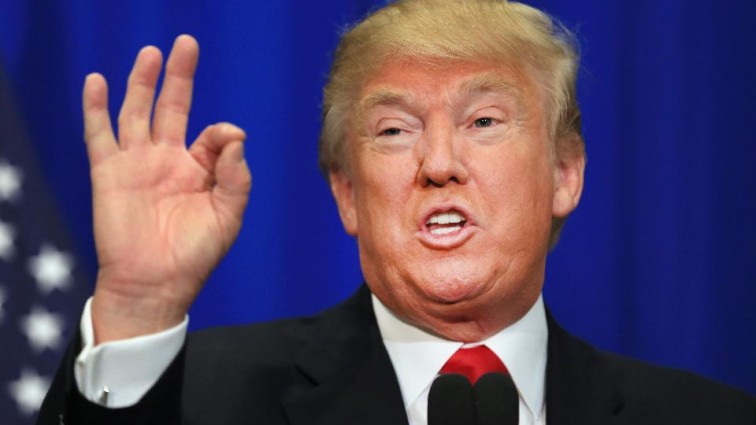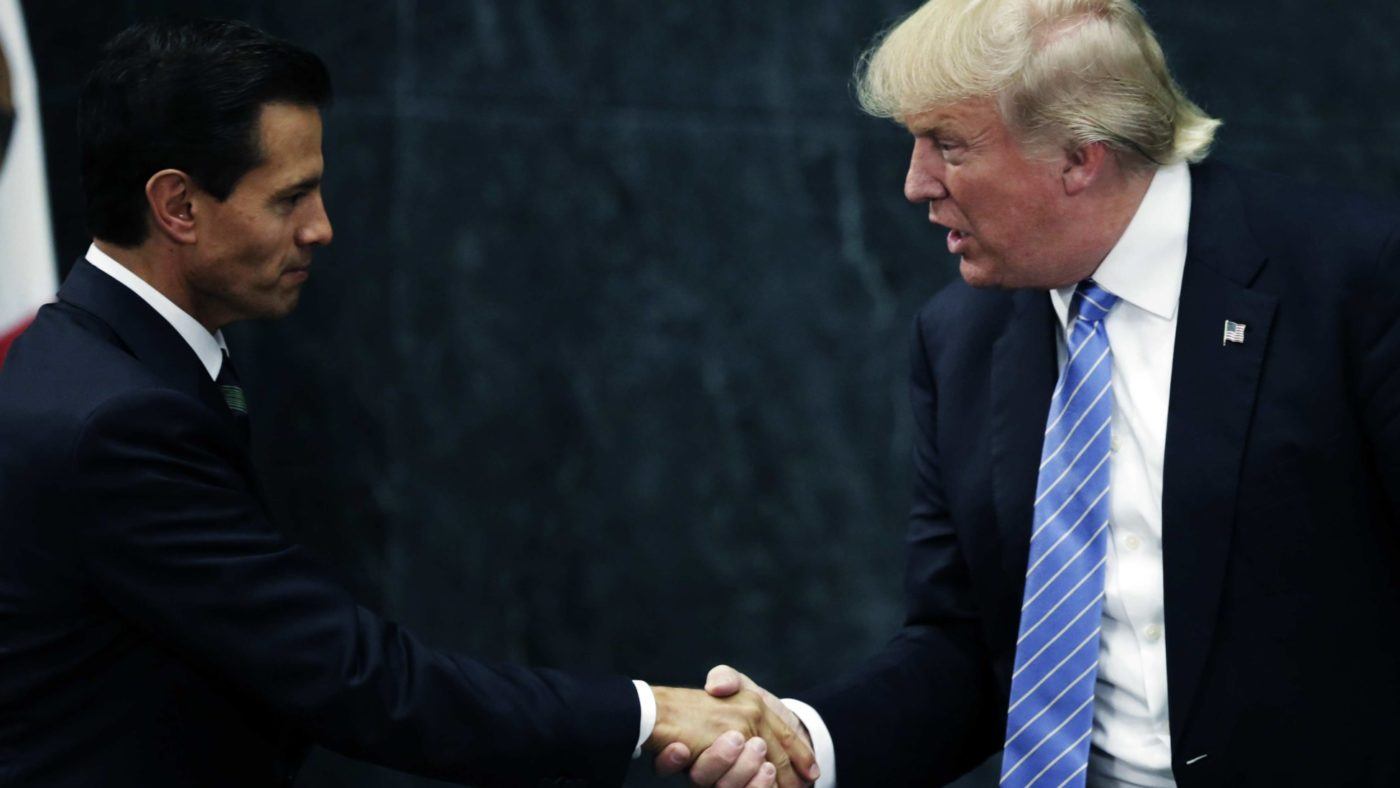Why there could be life after Nafta for Mexico

Donald Trump’s inaugural address will go down in Mexico’s history books as the speech which ended its long-standing, mutually beneficial relationship with America. Referring to Mexico, he described an uncontrolled border that fails to protect the USA from the “ravages of other countries making [our] products, stealing [our] companies, and destroying [our] jobs”.
The peso, which had fallen to a record low of 20 to the dollar ahead of President Trump’s victory, continued to tumble.
On the campaign trail, Trump had voiced his dislike of Mexicans and paraded his mistrust of Nafta because it favours Mexican workers over American ones. But few seriously considered that he meant what he said.
Indeed, Christopher Wilson, deputy director of the Mexican Institute at the Wilson Centre, promised: “Many of the things he said on the campaign trail will probably have to stay on the campaign trail because of the reality of the interdependence of the US-Mexico relationship.”
Currently, the USA buys almost 80 per cent of Mexico’s exports and Mexico is the second-largest market in the world for American goods. More than $1 billion of products cross the border every day. Ending this link would be like severing Mexico’s lifeline.
Nor would it be helpful to the US, which pays lower prices for products as a result of lower worker wages in Mexico. Meanwhile, the disruption of trade would be devastating for the American farm sector and related industries.
Mexico credits much of its growth to Nafta and the investment that came with it. Since its implementation in 1994, Mexican farm exports to the US have tripled. Hundreds of thousands of car manufacturing jobs have been created, and numerous studies have found that the agreement had a positive effect on consumer prices and worker productivity.
With Nafta came a significant move away from protectionism towards liberalisation, bringing a degree of prosperity and a stable rate of inflation.
The end of the agreement would be followed by certain recession in Mexico. Falling exports and plunging rates of foreign investment would devastate the country’s economy.
And what of the 35 million Mexicans who are currently living in the USA, and who send back a vital injection of cash into the Mexican economy in the form of tax remittances reaching $25 billion per year?
Protests are set to take place in Mexico City over the weekend against Trump, which will be underlined by a sense of betrayal among some Mexicans who feel their president sold out to Trump. President Peña Nieto not only called to congratulate the American on his victory, but has agreed to a summit between them next week.
Even as things stood pre-Trump, things in Mexico weren’t exactly great. Swathes of the country are in the hands of organised criminals. Corruption abounds. Politicians have done little to nothing. Yet Trump’s actions will surely add to the chaos, causing soaring prices, rampant inflation, and a weakening currency.
The political establishment in Mexico should be especially worried: as Mexicans become united against Trump, it is all too easy to see populism taking hold there, too. The next Mexican election is being held in 2018, and observers are speculating that a nationalist backlash could be a dominant factor.
But the very worst thing Mexico could do in retaliation to Trump is to start a trade war with the US – because it’s highly unlikely it would come out on top.
Instead, it should seek to end corruption and motivate people to pay their taxes, which could then fund infrastructure projects in the underdeveloped south. It should also seek to further liberalise its economy, and look to trade elsewhere – all with the common motivation of sticking it to Trump.
What happens in 2018 at the Mexican elections will be determined by the stance President Trump takes on Mexico. But Mexico’s future depends on its embrace of free trade, wall or no wall.
By Carl Sacklen
Политика конфиденциальности | Правила пользования сайтом









